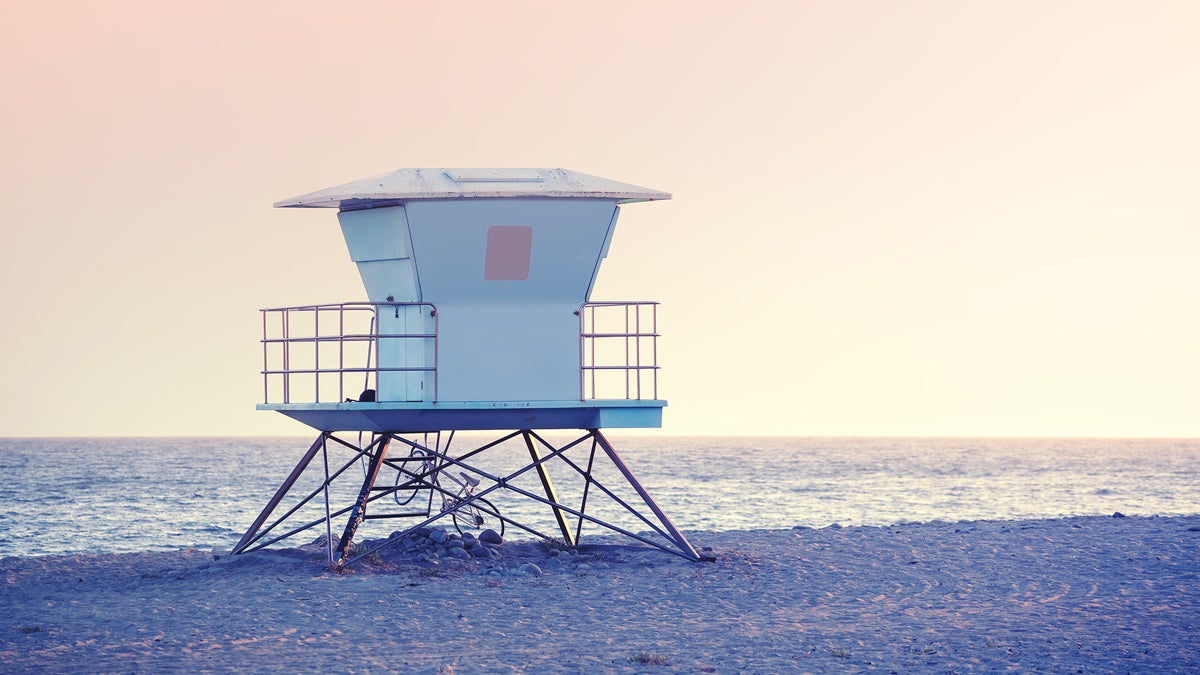In a world of ‘not my job,’ do you shut up or speak up?

My 10-year-old granddaughter is body surfing in the ocean. One of two young lifeguards is staring at his cell phone. Watching the surf, he is not. What would you do? Give him the benefit of the doubt? Pray that no one drowns on his shift? Call 911 to report him for not guarding lives?
My 10-year-old granddaughter is body surfing in the ocean, enjoying the first great waves of summer. At the water’s edge, I watch, delighted and admiring. I approach the lifeguard stand to ask about tide times and note that one of the two young men in the high chair is staring at his cell phone, head concealed under a wide-brimmed straw hat. Watching the surf, he is not.
I storm away, the blue sky transforming into a black hole in my mind. I want to dial 911 and report him for not attending to his duties. But back on dry sand, five adults tell me not to, uh, make waves.
What would you do? Give him the benefit of the doubt, allowing that he may have just received an important text from the lifeguard executive suite? Pray that no one drowns on his shift? Call 911 to report him for not guarding lives?
Here’s another situation: Your co-worker is an armed security officer, and you think his violent temperament and impulses make him unfit for the job. What would you do? Stand back, hoping people “in the know” will do the right thing? Tell his supervisor? Call the police?
Or suppose your oddball, unmarried male neighbor parades around the neighborhood too close to a bevy of young girls who wear traditional, Old Order dresses. For years you wonder what’s going on. What would you do? Figure it’s none of your business? Call the police or child-protection agency?
Similar dilemmas face us daily: Shut up or speak up.
In staying quiet, you acknowledge that you might lack complete information or might incorrectly observe what you think are facts. You might be angry at the individual, or annoyed or envious or stunned. You might simply be projecting what you would do under the circumstances.
Your reserve might indicate disinterest in the situation — the pandemic “it’s not my job” copout. You might fear the person might lose her or his job, or you might simply dread retribution.
I believe in speaking up, and I believe I am in the minority here. In seventh grade, a girlfriend and I somehow learned that two boys had cheated on a test, and we reported them to the principal. Somehow the boys learned it was us, and they never spoke to us again all through junior and senior high.
Never thought that was much of a loss. Always thought we did the right thing.
Decades later, I was directing national public relations at a solar-energy information center. One day I received a new boss, a man who had lost his job as a local TV host. He taught me brilliant stuff about reaching national media, but he refused to learn a whit about solar energy — and he created false facts during media interviews.
A dozen of us, communicators and solar engineers, knew about his deception, but I was the one most affected. I submitted a list of his lies to the program director, who eventually fired the charlatan. Always thought I did the right thing.
Not many people speak up and speak out. This activity is not the same as marching for peace or gun control, or LGBT visibility, because that activity becomes anonymous. Nor is it the same as running races to raise money for breast-cancer research, the Special Olympics, or the family down the street whose house burned down.
Marching and running are important activities, of course, in which participants support their beliefs and improve the world. But they are impersonal events, which focus more on the size of the crowd than the voice of the individual.
Blowing the whistle, invoking authority, calling 911: Those activities set the speaker up for praise or abuse, and therein lies the rub. There’s a fine line between this kind of tattling and situations in which totalitarian regimes (or the 1940s and ’50s House Un-American Activities Committee) encouraged people to report on friends and family. Some people might be unable to discern which circumstances help society and which only bolster evil.
What I did with the inattentive lifeguard was to return to his stand and ask him to turn off his phone. I told him my granddaughter’s life matters.
He said, “Yes, ma’am.”
What would you do?
—
Clarification: A 2012 Associated Press photo that previously illustrated this commentary showed a lifeguard station in Ocean City, New Jersey. The beach in the commentary, which the author did not name, was not in Ocean City.
WHYY is your source for fact-based, in-depth journalism and information. As a nonprofit organization, we rely on financial support from readers like you. Please give today.

